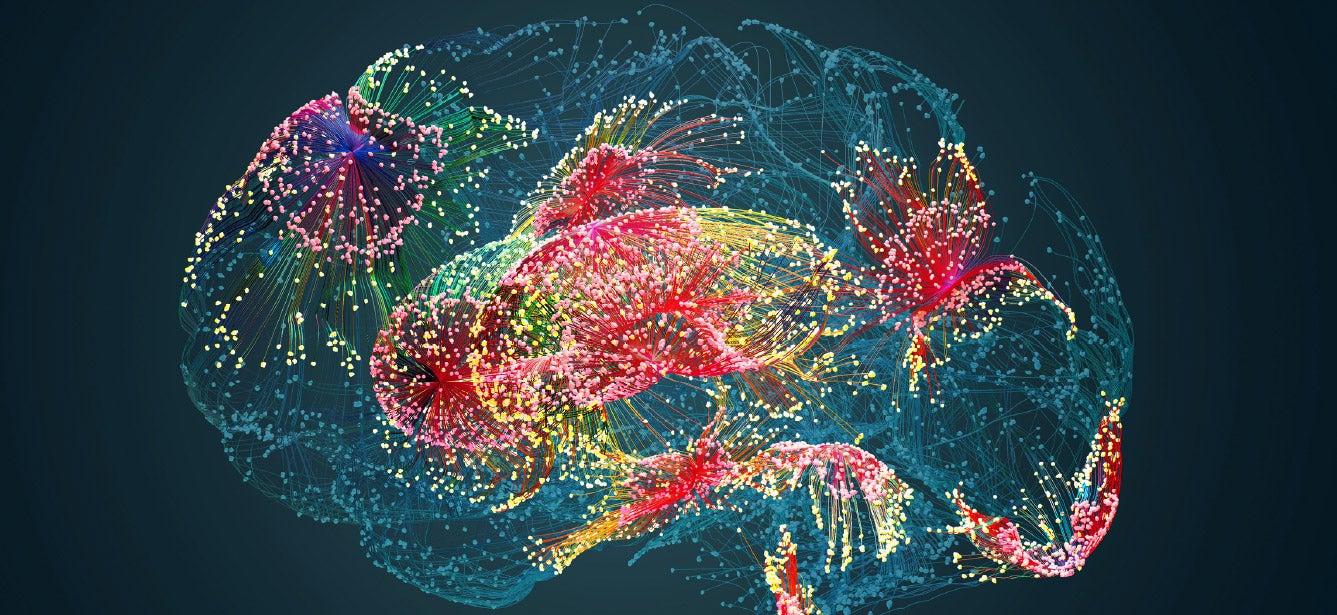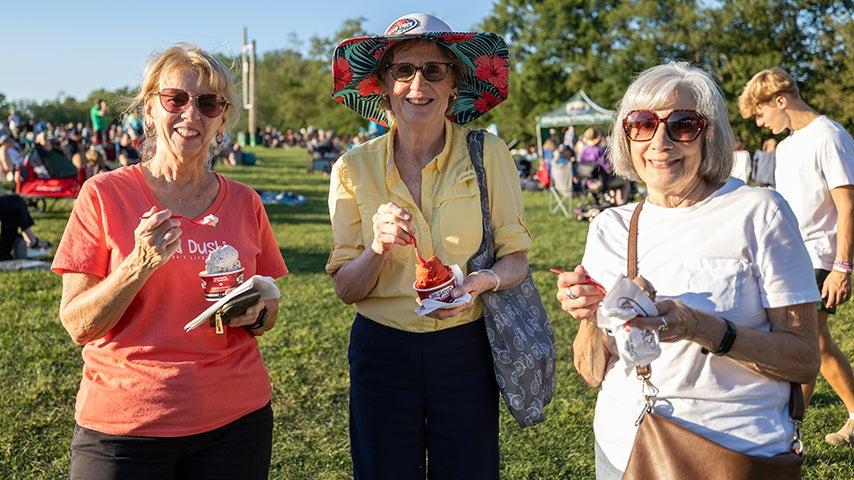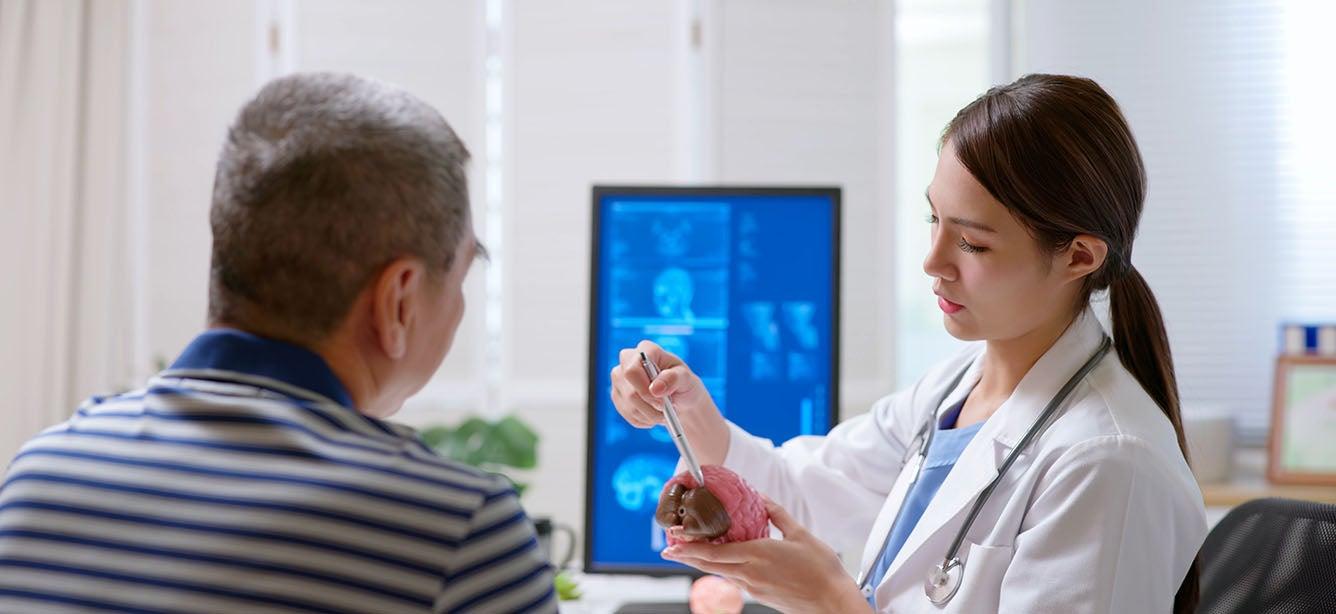A Guide to Traumatic Brain Injury Resources for Older Adults and Caregivers
5 min read

Related Topics
Life takes unexpected turns. For older adults who have experienced a traumatic brain injury (TBI), the path to recovery can be all at once difficult, rewarding, and transformative. Whether you’re a TBI survivor or a dedicated caregiver providing practical and emotional support, the road ahead may seem challenging. But it helps to remember you’re not alone.
In a breakout session at our Older Adults Mental Health Awareness Day (OAMHAD) Symposium in 2023, called "Traumatic Brain Injury and Mental Illness Among Older Adults,” presenter Maria Crowley, MA, CRC, Director of Professional Development at the National Association of State Head Injury Administrators (NASHIA) shared a variety of valuable TBI resources. “It is good to be informed whether you're the provider, you're the individual with a brain injury, or you're a family member,” Crowley said.
Below is a list of these and other resources for those navigating life with a traumatic brain injury and its mental health effects.
Resources for traumatic brain injury (TBI) survivors, families, and caregivers
Centers for Disease Control & Prevention (CDC)
CDC's website offers an array of information on TBI and concussions (a mild form of traumatic brain injury), including articles, fact sheets, statistics, and support resources.
Brain Injury Association of America (BIAA)
BIAA aims to promote awareness, research, treatment, and education to improve quality of life for those affected by brain injury. With sections geared toward TBI survivors, caregivers, and professionals, the BIAA website features information on diagnosis and treatment as well as a Caregiver Resource Center. You can find the Brain Injury Association where you live by clicking on your state in this map.
Bringing together nearly 20 advocacy groups, Concussion Awareness Now is a coalition of nonprofit organizations cofounded by Abbott and the Brain Injury Association of America (BIAA). It focuses on advancing awareness around concussions by sharing information on causes, symptoms, and treatment.
Brain Injury Guide & Resources
The Brain Injury Guide & Resources website is a collaboration between the University of Missouri School of Health Professions and Department of Health Psychology and the Missouri Department of Health and Senior Services (MO-DHSS). It provides information for people living with TBI, families and caregivers, and human services professionals looking to better understand the impact of brain injury on certain populations. Articles include insights on coping with TBI-related behavioral and emotional issues.
The Job Accommodation Network offers detailed information about seeking employment following a traumatic brain injury. It also offers guidance on workplace accommodations and helping employees with TBI succeed.
Model Systems Knowledge Translation Center (MSKTC)
MSKTC offers a wealth of online TBI resources such as articles, videos, infocomics, slideshows, and fact sheets—including Depression After Traumatic Brain Injury and Changes in Emotion After Traumatic Brain Injury.
MSKTC is operated by the American Institutes for Research® (AIR®), which translates health information into user-friendly language and formats. Its website focuses on people with spinal cord injury, TBI, and burn injury as well as their families and caregivers.
National Association of State Head Injury Administrators (NASHIA)
NASHIA is a national trade organization that helps state governments foster partnerships and build systems to meet the needs of people with brain injury and their families. NASHIA also has a comprehensive directory featuring information on state and territory brain injury programs, Medicaid waiver programs, and brain injury advisory councils.
National Resource Center for TBI (NRCTBI)
Based at Virginia Commonwealth University’s Medical College of Virginia Campus, the National Resource Center for Traumatic Brain Injury offers practical information for people with brain injury and their family members— including articles, FAQs, videos, and links to additional resources.
UAB-TBIMS Traumatic Brain Injury Model System Information Network
The University of Alabama at Birmingham Traumatic Brain Injury Model System (UAB-TBIMS) offers a robust online library with in-depth articles, fact sheets, research, and rehabilitation tip sheets. You'll also find the In-home Cognitive Stimulation Guidebook, which highlights activities to help promote cognitive skills in people with brain disorders.
United States Brain Injury Alliance
The U.S. Brain Injury Alliance provides education, collaboration, advocacy, and outreach to help people with brain injuries live well. Search for your state affiliate by visiting their website and scrolling to the bottom of the page.
TBI resources for veterans
BrainLine focuses on brain injury and post-traumatic stress disorder (PTSD) among military service members and veterans. Its website features informational articles, personal stories and blogs, expert Q&A sessions, and a resource directory for people with TBI, caregivers and families, and professionals. Articles include Emotional Problems After Traumatic Brain Injury and Coping with Post-TBI Anxiety & Stress.
Traumatic Brain Injury Center of Excellence
A collaboration of the Departments of Defense and Veterans Affairs (VA), this online resource hub offers TBI clinical tools, educational resources, podcasts, and research information for medical providers, service members and veterans, and family members and caregivers.
Caregiver-focused TBI resources
Caregiver Action Network (CAN)
CAN is a non-profit organization that provides support, education, and resources to family caregivers across the U.S. A variety of resources and services can be found on its website, including articles, online support communities, a Family Caregiver Toolbox, and personal caregiver stories.
Family Caregiver Alliance (FCA)
The goal of FCA is to support and assist families and friends who are providing long-term care for loved ones at home—including those caring for an older adult with traumatic brain injury. This organization promotes a range of services, multi-lingual resources, and advocacy initiatives to help caregivers cope with the day-to-day challenges of caregiving.
National Alliance for Caregiving
NAC is a coalition of national organizations dedicated to recognizing and supporting the 53 million+ family caregivers in the U.S. who provide care to adults and children with health challenges or disabilities such as TBI.
Learn more about support for caregivers of people who have traumatic brain injury and mental illness.
This project was supported, in part by grant number 90CSSG0048 and 90FPSG0051 from the U.S. Administration for Community Living, Department of Health and Human Services, Washington, D.C. 20201. Grantees undertaking projects under government sponsorship are encouraged to express freely their findings and conclusions. Points of view or opinions do not, therefore, necessarily represent official Administration for Community Living policy.


